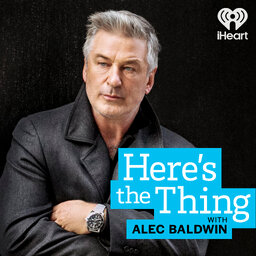Christian McBride on Jazz and “Jawn”
Acclaimed jazz musician Christian McBride has made hundreds of recordings, won eight Grammy Awards and led numerous ensembles, including the Christian McBride Band, the Christian McBride Big Band, Inside Straight and the New Jawn. The versatile bassist has collaborated with jazz legends Herbie Hancock, Ray Brown, Freddie Hubbard, and Chick Corea, as well as artists outside the genre like Sting, Paul McCartney and Celine Dion. Known as a child prodigy, McBride performed with Miles Davis and Wynton Marsalis while still in high school, where he attended Philadelphia’s High School for the Creative and Performing Arts, alongside future members of The Roots and Boyz II Men. McBride now serves as the artistic director of the Newport Jazz Festival and the educational foundation Jazz House Kids. Christian McBride speaks with Alec about his influences, leaving Juilliard early to go on the road, and how being a working musician is similar to being a professional athlete. For information on upcoming tour dates, go to christianmcbride.com.
You can find a playlist featuring Alec’s favorite Christian McBride songs here.
In 1 playlist(s)
Here's The Thing with Alec Baldwin
Award-winning actor Alec Baldwin takes listeners into the lives of artists, policy makers and perfor…Social links
Follow podcast
Recent clips

Karina Canellakis - from Violinist to Conductor
47:32

From the Archives: Anjelica Huston on Modeling, Movie-Making, and a Life in the Spotlight
48:25

The Fearless Robbie Kaplan
42:32
 Here's The Thing with Alec Baldwin
Here's The Thing with Alec Baldwin